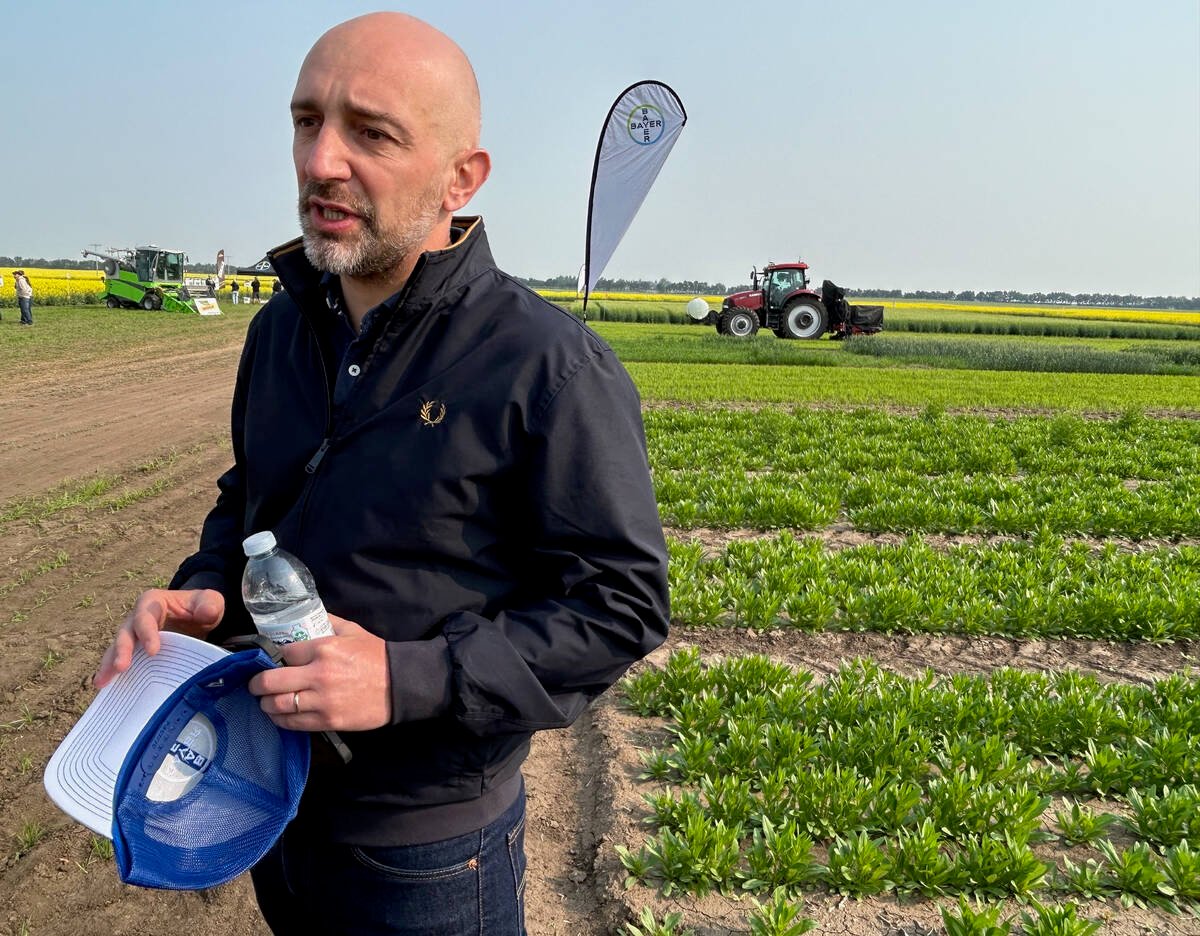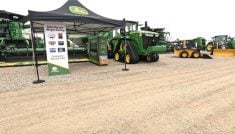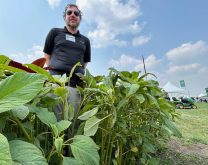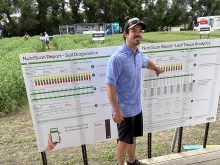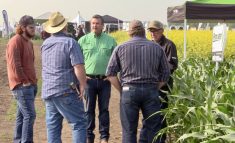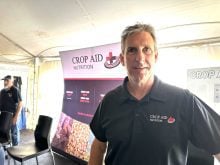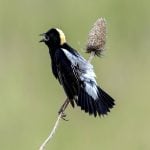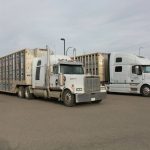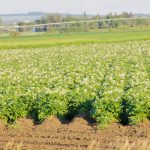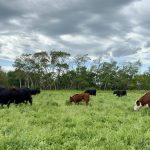LANGHAM, Sask. — Since U.S. president Donald Trump took office, there’s been plenty of confusion around biofuel policies in the United States.
That uncertainty has had a domino effect in Canada, with canola futures moving up and down in response to the latest news on biofuel rules or potential changes to the regulations.
Despite all that chaos, the country division head for Bayer Crop Science Canada believes Canadian farmers have a massive opportunity to grow oilseeds and provide feedstock for biofuel processors around the globe.
Read Also
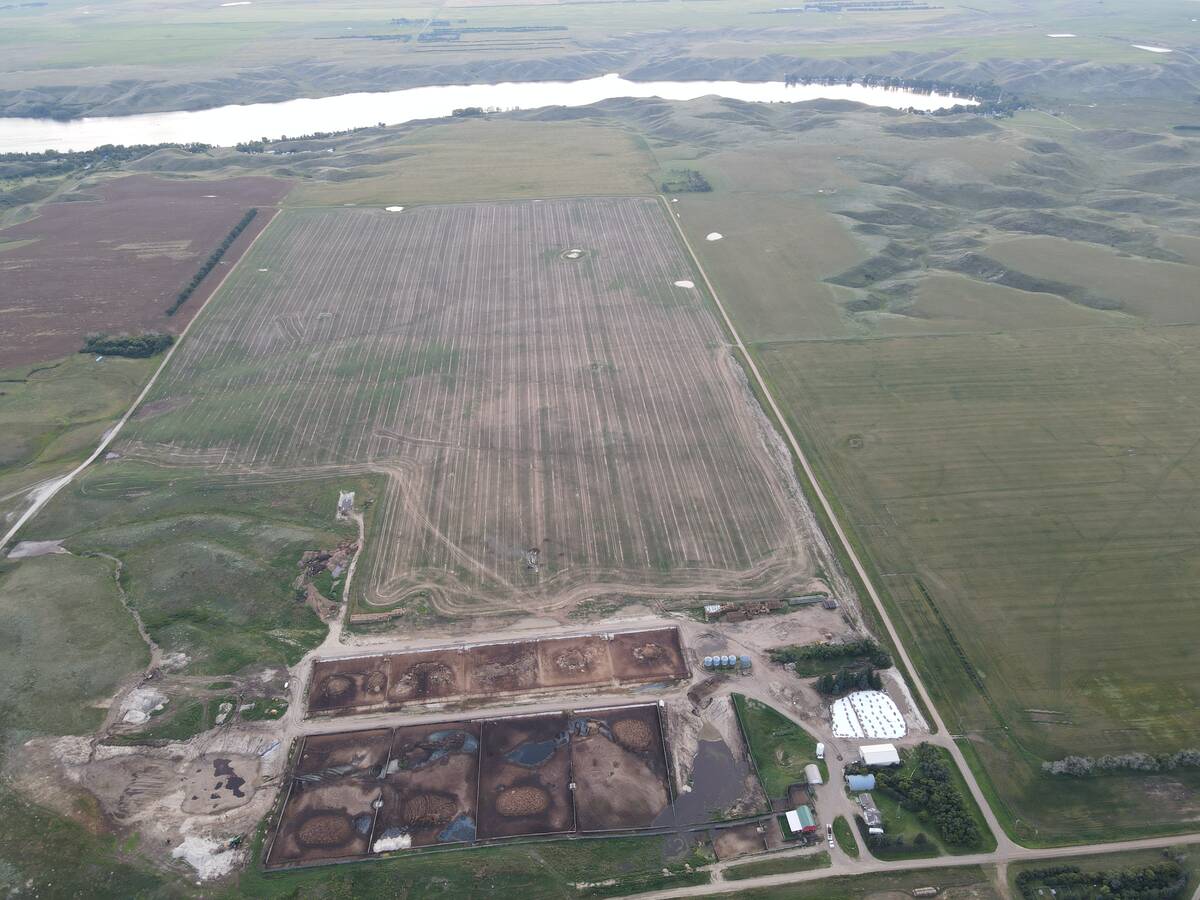
Saskatchewan RM declines feedlot application, cites bylaws
Already facing some community pushback, a proposed 2,000-head cattle feedlot south of Swift Current, Sask., has been rejected for a municipal permit, partly over zoning concerns about the minimum distance from a residence.
“We do see an increase of biofuel demand, worldwide. And we believe, especially in Western Canada, there will be an opportunity for farmers to meet this demand,” said Antoine Bernet, who spoke July 16 at the Bayer Crop Science research farm east of Saskatoon.
“We are investing, now, to … provide farmers with new (oilseed) crops.”
Bayer opened up its Saskatoon centre to farmers and members of the media during the Ag In Motion 2025 farm show, held in Langham, Sask., from July 15-17.
Follow all our Ag in Motion coverage here
Bernet, who is from the Lyon region of France and became Bayer Crop Science country head for Canada in 2023, shared some internal company analysis on biofuel demand.
“If you look at the projections by 2030, we will need an extra 120 million acres of oilseed crop … to meet this increasing demand,” he said.
“There are huge opportunities for western Canadian farmers…. We’re working on creating a new crop portfolio, to help farmers to meet this (biofuel) need in the future.”
In January, Bayer purchased the seed and IP assets of a Saskatoon company called Smart Earth Camelina, which has developed varieties of camelina and contracted production of the oilseed in Saskatchewan.
“Smart Earth Camelina .. has been at the forefront of camelina development for over 20 years, and camelina is now poised to join the ranks of the other major oilseed crops,” Jack Grushcow, president and chief executive officer of Smart Earth, said in January.
Smart Earth will continue to operate its business, which is selling camelina to the pet food and equestrian markets.
Camelina could be a fit for farmers in the brown soil zone of the Prairies, which receives less rainfall and where canola yields are much lower than other regions of Western Canada. In some years, canola produces less than 30 bushels per acre in southwestern Saskatchewan and other parts of the brown soil zone.
“This (geography) is exactly the opportunity,” Bernet said, while standing next to a camelina plot at the Bayer research centre near Saskatoon.
“These crops (camelina) can produce a high level of yield per acre, with a very low carbon intensity.”
Bayer’s purchase of Smart Earth is part of the company’s continued investment in Canada.
Bernet said Bayer is devoting more dollars to its three pillars of innovation for Canadian agriculture – seeds, crop protection and digital.
“We are working a lot in R&D, more and more … in Western Canada, in Canada in general, to bring innovation (to) the farm.”


